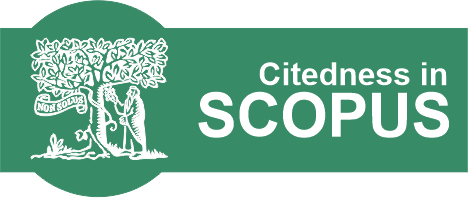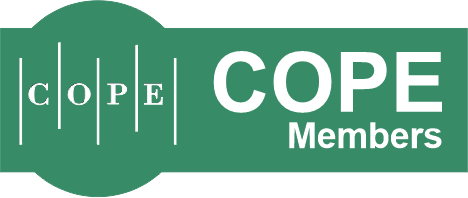The Influence Of Social Media On English Vocabulary Mastery Among Generation Z Students
Keywords:
Social Media, English Vocabulary Mastery, Generation Z.Abstract
This research aimed to investigate the influence of social media on English vocabulary mastery among Generation Z students. The study was motivated by the increasing use of social media platforms such as TikTok, YouTube, and Instagram, which are often used as informal language exposure by students.The method used in this study was quantitative with a one-group pre-test and post-test design. Data were collected through a vocabulary test and a questionnaire distributed via Google Form to 20 students. The results were analyzed using paired sample t-test and simple linear regression through SPSS 25.
The findings showed a significant difference between the pre-test (mean = 50.75) and post-test (mean = 82.25) scores, with a significance value of 0.000 (< 0.05). This indicates that social media exposure effectively improved students’ vocabulary mastery. Furthermore, the regression analysis revealed that students’ social media engagement had a significant effect on their vocabulary mastery, with R² = 0.378 and a significance value of 0.004 (< 0.05). This means that 37.8% of the variance in vocabulary mastery was explained by students’ social media engagement. In conclusion, social media can be considered an effective supplementary tool for enhancing vocabulary mastery, especially when students actively engage with English-language content
References
Abdul Jalil Jum’uatullaila, Buhari, Syahrir L, & Sam Hermansyah. (2025). The Influences of Using Quizizz in Student’s English Learning Outcomes. INTERACTION: Jurnal Pendidikan Bahasa, 12(1), 1030–1040. https://doi.org/10.36232/interactionjournal.v12i1.3526
Alhabash, Saleem and Ma, M. (2017). A Tale of Four Platforms: Motivations and Uses of Facebook, Twitter, Instagram, and Snapchat among College Student’s. Social Media + Society, 3(1). https://doi.org/{10.1177/2056305117691544}
Almohesh, M. and Altamimi, A. (2024). The Effect of Instagram Feed-Based Activities on Vocanulary Acquistion Among Intermediate EFL Learners. Asian EFL Journal.
Almuhanna, M. (2020). The role of informal digital learning of English and technologyuse on Saudi EFL students English language vocabulary learning. Arab World English Journal, 11(1), 174–192.
Alwehaibi, H. O. (2015). The Impact of Using YouTube in EFL classroom on enhancing EFL Student’s content learning. Journal of College Teaching & Learning, 12(2), 121–126.
Alzahrani, A. (2024). Social Media and its Influence on Vocabulary and Language: A Case Study. Academia. Edu.
Arikunto, S. (2013). Prosedur Penelitian Suatu Pendekatan Praktik Penelitian?: Suatu Pendekatan Praktik. In Jurnal Universitas Udayana. ISSN (Vol. 2302). Rineka Cipta.
BEMMOUSSAT, N. D., & BOUYAKOUB, N. (2019). English Language Education in Algeria: Hostage of an Exam-Centric Education System. Arab World English Journal, 10(3), 202–219. https://doi.org/10.24093/awej/vol10no3.14
Boyd D. M. & Ellison, N. B. (2007). Social network sites: Definition, history, and scholarship. Journal of Computer-Mediated Communication, 13(1), 210–230. https://doi.org/10.1111/j.1083-6101.2007.00393.x
Burr, V. (2014). What Is Social. In Social Constructionism (Issue 004663, pp. 1–12).https://www-taylorfrancis-com.libezproxy.open.ac.uk/books/mono/10.4324/9781315715421/social-constructionism-vivien-burr
Dimock, M. (2019). Defining generations: Where Millennials End and Generation Z Begins. In Pew Research Center (Vol. 17, Issue 1, pp. 1–7).
Godwin-Jones, R. (2020). Emerging technologies: Language learning with TikTok and other short-form videos. TESL-EJ, 24(1). https://www.tesl-ej.org/wordpress/issues/volume24/ej95/ej95int/
Hsu, Ying-Shao and Wang, T.-H. (2017). Using Google forms to collect and analyze data in science classrooms. Science Scope, 40, 64–70.
Kaplan A. M. & Haenlein, M. (2010). Users of the world, unite! The challenges and opportunities of social media. Business Horizons, 53(1), 59–68. https://doi.org/10.1016/j.bushor.2009.09.003
Krahnke, K. J., & Krashen, S. D. (1983). Principles and Practice in Second Language Acquisition. In TESOL Quarterly (Vol. 17, Issue 2). Pergamon Press. https://doi.org/10.2307/3586656
Laufer, B. (1997). The lexical plight in second language reading: Words you don’t know, words you think you know, and words you can’t guess. Second Language Vocabulary Acquistion, 20–34.
Megawati, Sam Hermansyah, Syahrir L, & Sitti Aisa. (2025). Analyzing Of The Use ELSA Speak Application With A Video Tutorial Approach Among Generation Z Students. Macca: Journal of Linguistic Applied Research, 2(2). Retrieved from https://journal.adityarifqisam.org/index.php/macca/article/view/191
Meltwater, W. A. S. and. (2023). Digital 2023: Indonesia.
Ming Zhou and Rui Wei. (2018). Social media for English acquistion in indonesia higher education. Procedia Computer Science, 138, 243–250.
Mitrulescu, A. (2024). The Role of Social Media in Motivation and Vocabulary Acquistion in EFL Learning. International Journal of Applied Linguistics and English Literature.
Nation, I. S. P. (2001). Learning Vocabulary in Another Language. Cambridge University Press.
Prensky, M. (2001). Digital natives, digital immigrants part 1. On the Horizon, 9(5), 1–6. https://www.marcprensky.com/writing/Prensky - Digital Natives, Digital Immigrants - Part1.pdf
Putra I. G. N. A. & Arifin, Z. (2020). Social media for English language acquisition in Indonesian higher education. Procedia Computer Science, 179, 342–350. https://www.sciencedirect.com/science/article/pii/S2590291125001093
Rahim, M. A. and Yusoff, M. N. M. and Ahmad, N. (2024). Social Media and its Influence on Vocabulary and Language Learning: A Case Study. Academia. Edu.
Sam Hermansyah, & Ahmad Rizal Majid. (2025). The Use of Probing-Prompting Technique to Improve Reading Comprehension of Eighth Grade Students. INTERACTION: Jurnal Pendidikan Bahasa, 12(1), 543–556. https://doi.org/10.36232/interactionjournal.v12i1.2660
Schmitt, N. (2008). Review Article?: Instructed Second Language Vocabulary Learning. Language Teaching Research, 12(3), 329–363. https://doi.org/10.1177/1362168808089921
Seemiller C. & Grace, M. (2016). Generation Z: Educating and engaging the next generation of students. About Campus, 21(3), 21–26. https://doi.org/10.1002/abc.21140
Sugiyono. (2018). Metode Penelitian Kuantitatif, Kualitatif, dan R&D. Alfabeta.
Sundqvist, Pia and Sylven, L. K. (2014). Language-related computer use: Focus on young L2 English learners in Sweden. ReCALL, 26(1), 3–20. https://doi.org/10.1017/S0958344013000232
Suthiwartnarueput K. & Wasanasomsithi, P. (2021). Exploring the Impact of Social Media Use on English Vocabulary Mastery. SCOPE Journal, 5(2), 45–60.
Wang S. & Vasquez, C. (2012). Social media and language learning: Theories and applications. CALICO Journal, 29(3), 412–430. https://doi.org/10.11139/cj.29.3.412-430
Wati, R. and Rahman, F. and Syahrial, A. (2024). The Effectiveness of Social Media in English Vocabulary Mastery. International Journey of Language and Literature.
Y. Huang. (2020). (the impact of social media facebook and youtube) on vocabulary acquistion of ESL learners),. SSRN.
Yunus M. M. & Salehi, H. (2012). The effectiveness of using YouTube video in teaching vocabulary. Procedia - Social and Behavioral Sciences, 66, 285–292. https://files.eric.ed.gov/fulltext/EJ1083697.pdf
Yunus M. M. & Salehi, H. (2024). The Relationship Between Social Media Usage and Vocabulary Size in Malaysian University Students. International Journal of Language and Linguistics.
Zainal, Z., & Rahmat, N. H. (2020). Social Media and Its Influence on Vocabulary and Language Learning: a Case Study. European Journal of Education Studies, 7(11). https://doi.org/10.46827/ejes.v7i11.3331
Zheng, Binbin and Warschauer, M. (2021). Participation, interaction, and academic achievement in language learning: A case study of a Facebookgroup in a college EFL class in china. Journal of Educational Computing Research, 59(4), 661–686.
Downloads
Published
How to Cite
Issue
Section
License
Copyright (c) 2025 gustinah gustinah, syamsu T, Sitti Aisa, Ibrahim Manda

This work is licensed under a Creative Commons Attribution-ShareAlike 4.0 International License.



































